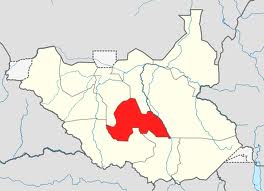
Returnees arriving with trauma after experiencing horrific scenes in Sudan

Some of the returnees who escaped deadly intermittent fighting in neighboring Sudan are arriving traumatized with chilling stories of the bloody scenes in Sudan.
Nyalueth Kuol, a 45- year- old mother who worked as a house cleaner, fled conflict in her home in Madina Riadhia in Central Khartoum with only the clothes on her.
She said she slept at the place of work on that fateful April 15, and moved out the next morning where she saw first –hand dead bodies lying in the streets.
Kuol said she and other people spent torturous journeys for days while footing out of the war zone in the capital, Khartoum.
She said she is lucky to have a relative in Juba, unlike other many arrivals who have nowhere to go after being evacuated to Juba by the government and other well-wishers.
“We appreciate aid agencies for their support but we want the government to support us more, and also the agencies to help us in many ways,” Kuol said during an interview last week at Juba International Airport, where many returnees without relatives are stranded.
She is currently staying with her five children at her relative’s home in Gudele, but hoping to return to her home in Wau of Western Bahr El Ghazal State.
“I just don’t know what to do yet. My plan is to work hard, do anything so that my children can enroll in University,” Kuol said.
Nyanyai Deng, 27, who worked at laundry shop in Arabi surburb of Khartoum, said she never thought of remaining in Khartoum after a bomb was dropped on her apartment in Deim.
“What made me leave is that a bomb fell on our apartment building and destroyed the living room, when I was in the house. I escaped narrowly. I just can’t forget the shock it caused me. I then knew I could die and decided to flee,” she said.
The mother of five, said she left for Rabat using public transport at a fee of 50,000 Sudanese Pounds.
“My money got finished. We found some Shilluk men who took us to the church to spend the night. The following morning, I went out and sold my gold necklace because I had no money. It was bought at 120,000 at a loss. In Joda, we were taken in an NGO car, they gave us water and accommodation, but there was tribalism, that’s why we left for Paloch,” Deng said.
“They look at your face and ask where you come from and then you see what you are given is different from others. The food was little but we had to bear the situation,” she added.
Deng lost her husband who was a soldier during the fighting in December 2013 in Juba.
She is hoping to return to her home town of Kuacjok in Warrap State. Currently she is being hosted by relative in Giada.
“I will go. I can do business there, I can begin with selling tea but my plan is that if I can get access to money, I will begin selling food commodities because they are in demand and yet scarce,” Deng said.
Aluel Deng, in her mid-30, who is still stranded at Juba Airport, said they have been promised food assistance but nothing has been given to them.
“What I want to tell the NGOs is that they should support us,” she said.
“No one is helping me with my children since my husband died. I shoulder the responsibility alone. I know I am poor and cannot set up something that brings me money, so I am asking to be assisted with my children,” Deng said.

Some of the returnees at JIA.
Edmund Yakani, Executive Director for Community Empowerment for Progress Organization (CEPO) said that the humanitarian assistance being provided to the returnees is inadequate.
“You should remember our government has made a statement that they cannot establish camps, but if you can see at Paloch, if you see at Renk point of departure where people who have run out of Sudan are seeking assistance or they are seeking safety and security from the violence in Sudan and some border points of South Sudan, what we call points of entry, the distribution of humanitarian assistance there are so discriminative,” Yakani said.
Albino Akol Atak, the national minister for humanitarian affairs and disaster management, said that the government supporting the returnees including elderly, women, children, and the sick.
“The focus of response is to the most vulnerable people, the basic assistance to them is transportation and provision of food and medical services among others,” Akol said last week.
South Sudan is now hosting more than 70,000 returnees and Sudanese refugees who fled violence in Sudan since April 15.



































